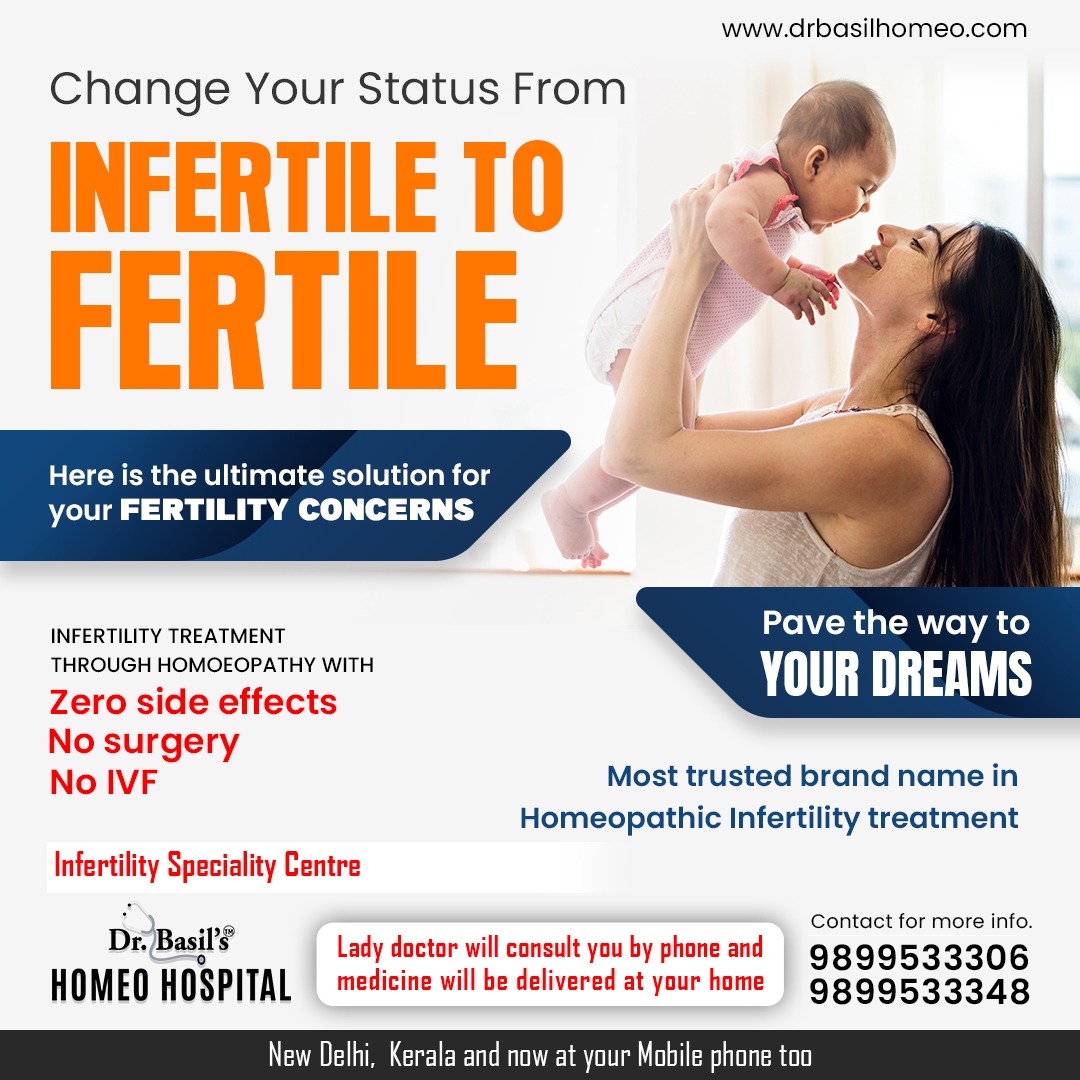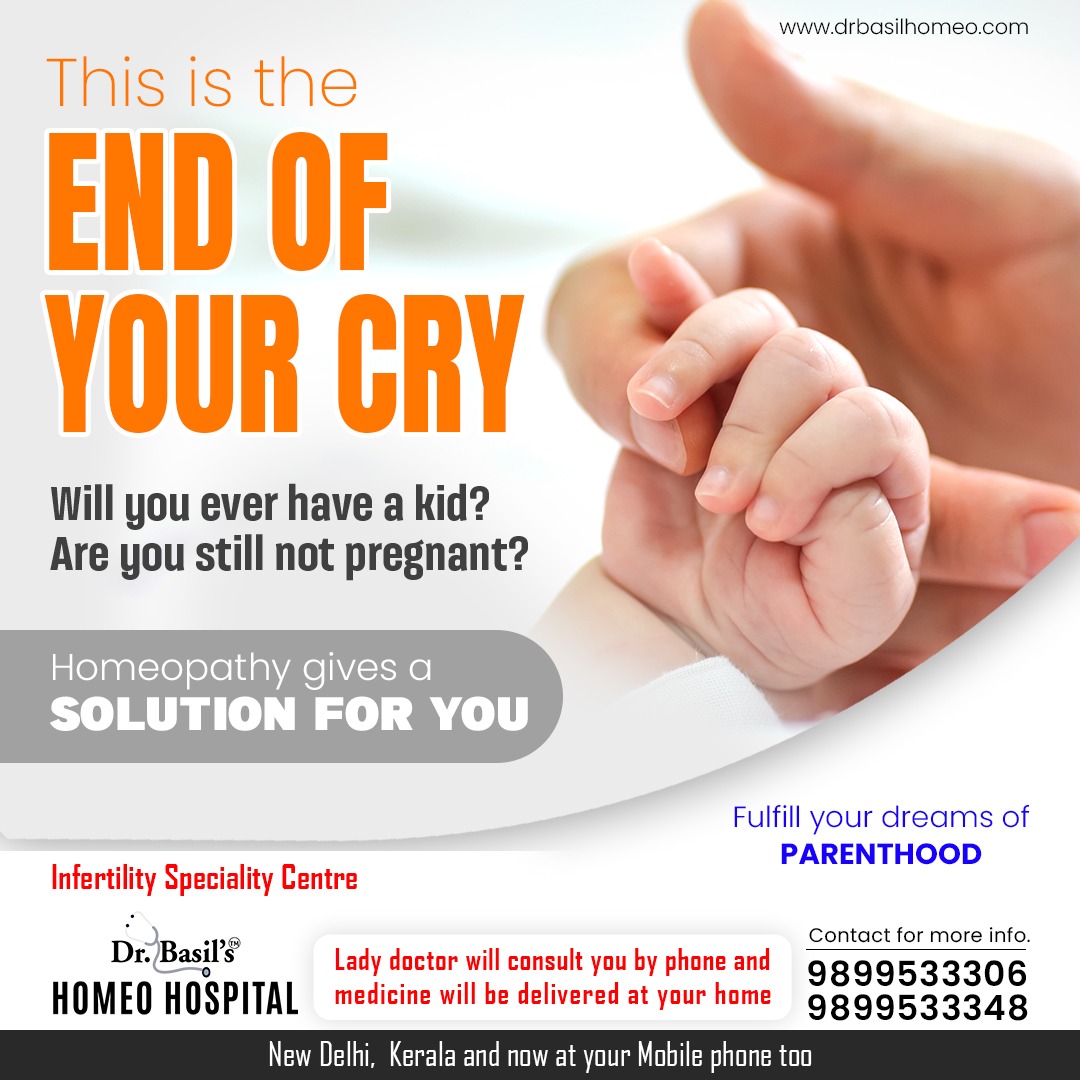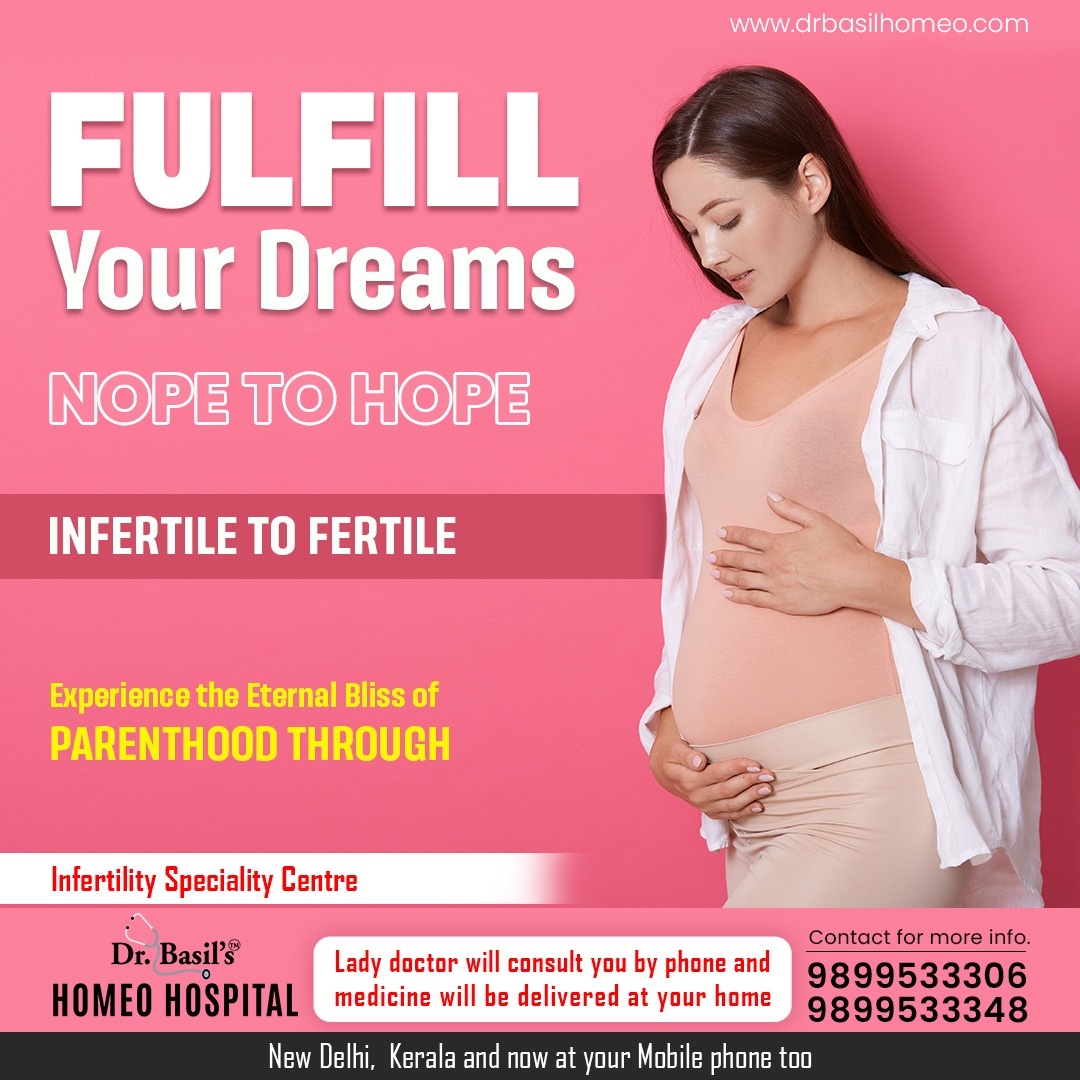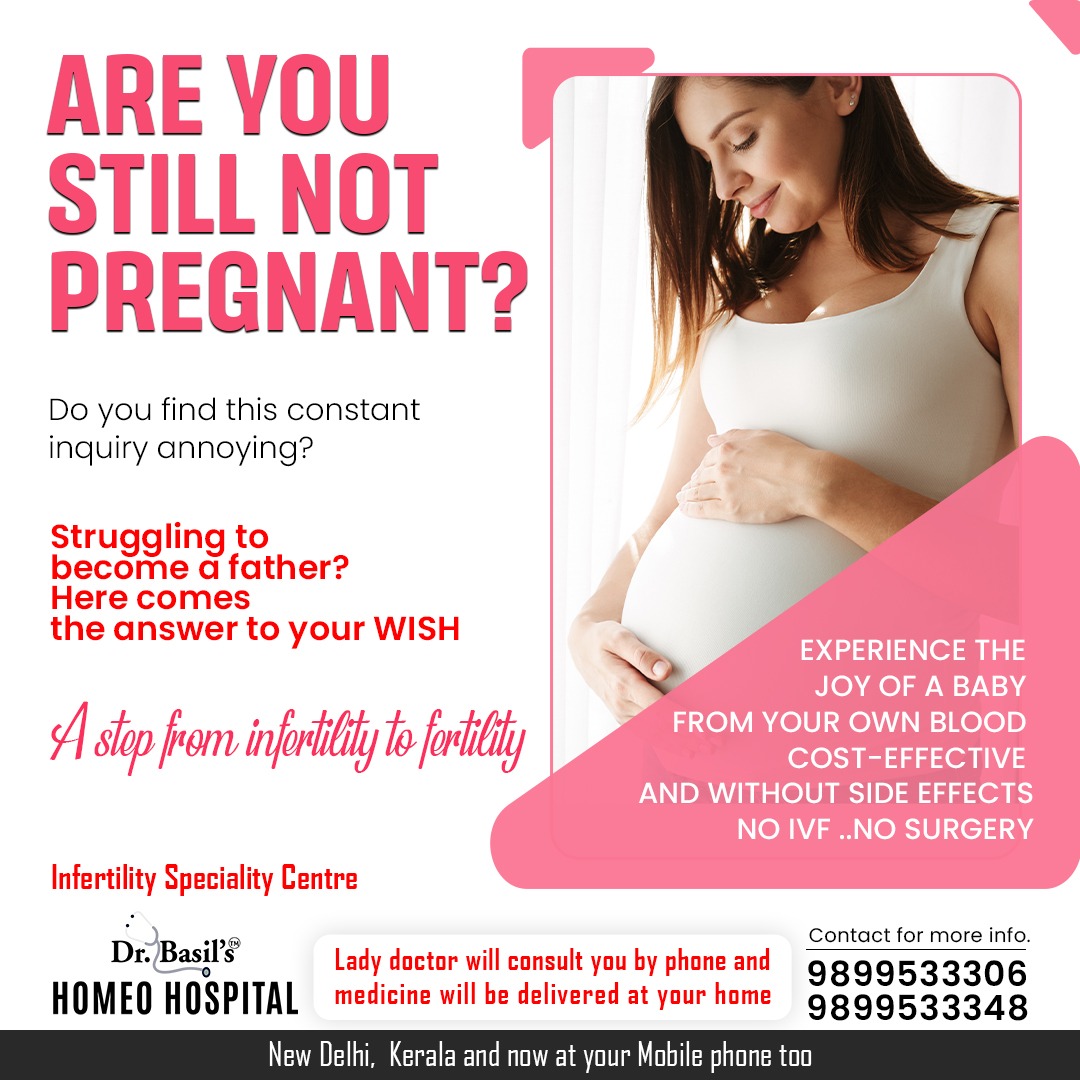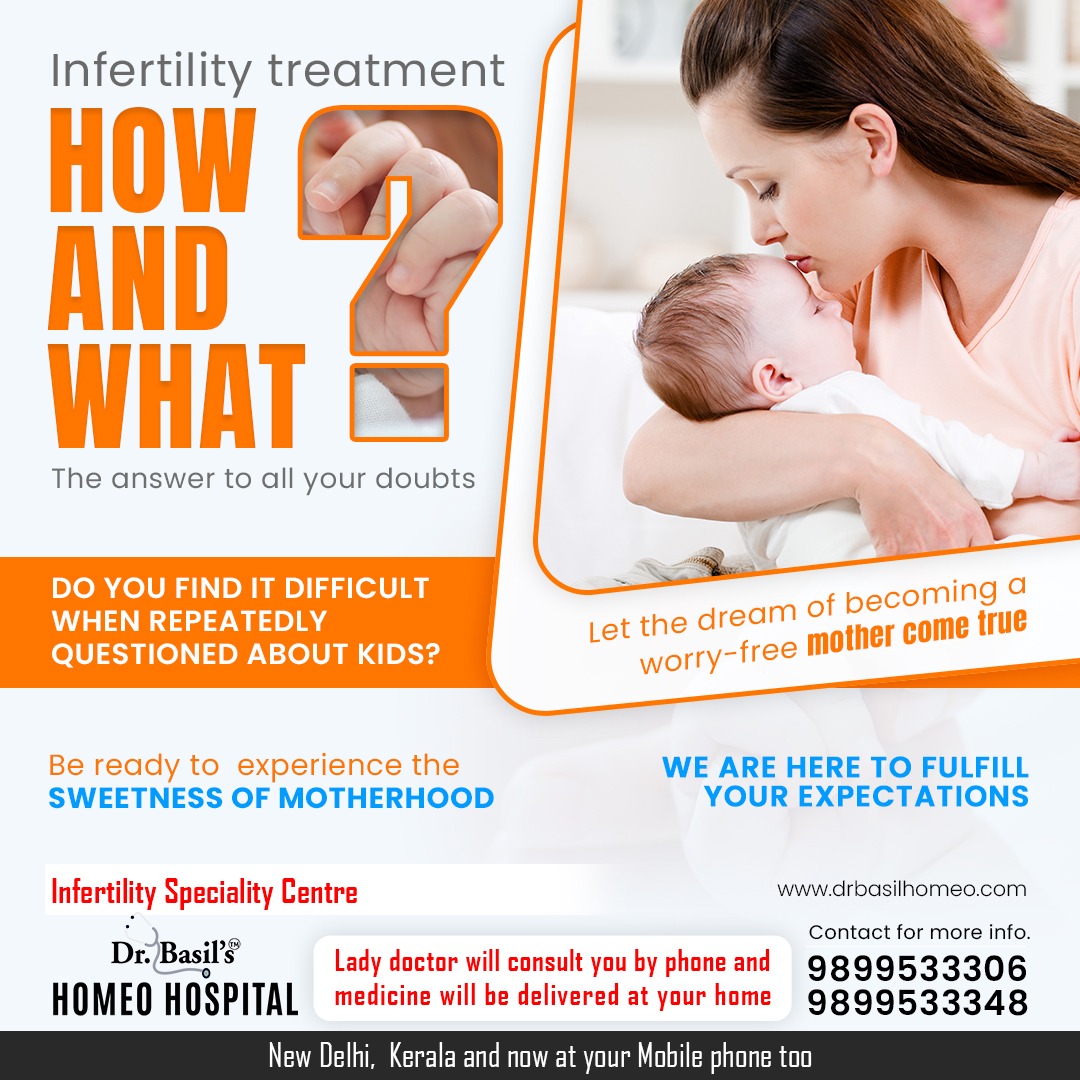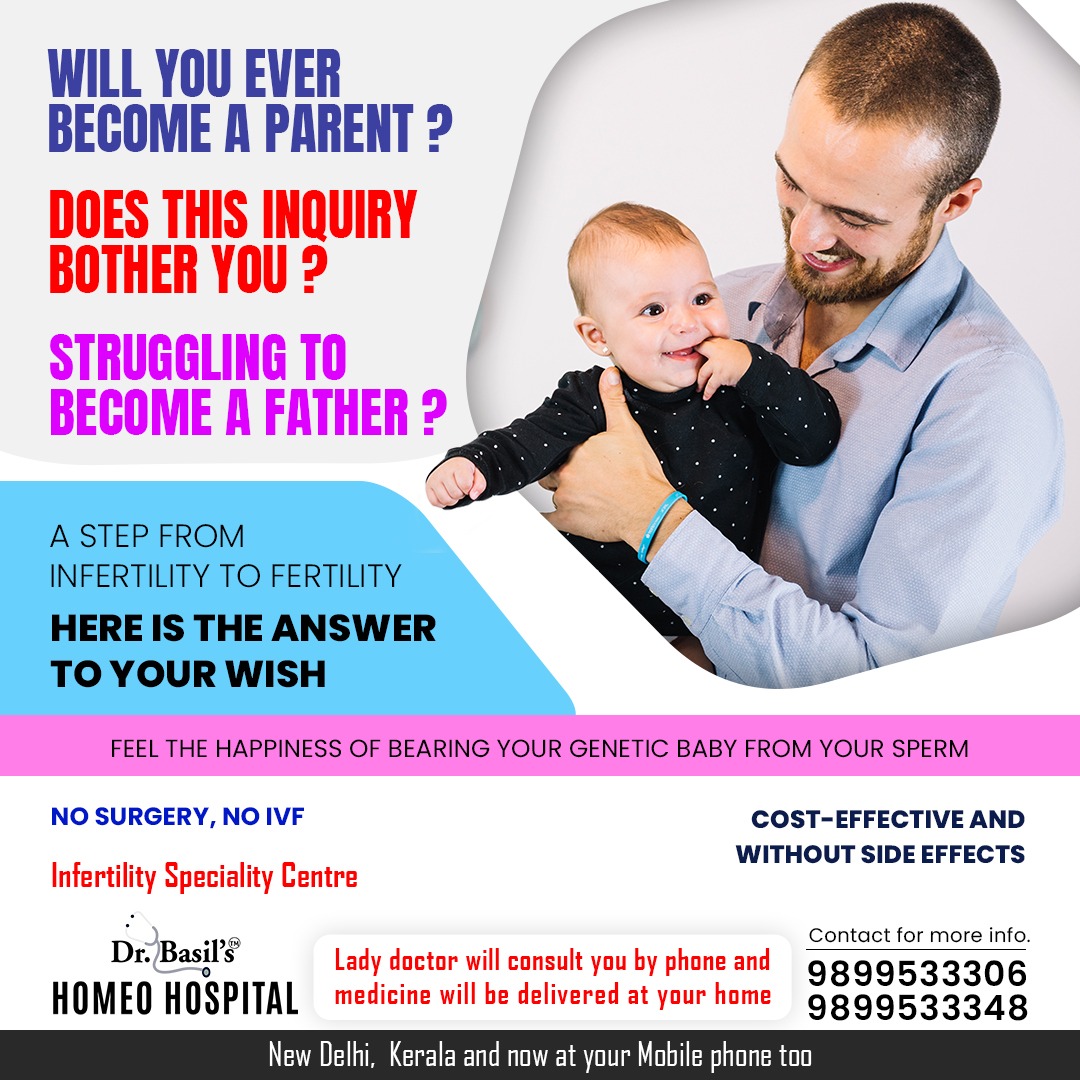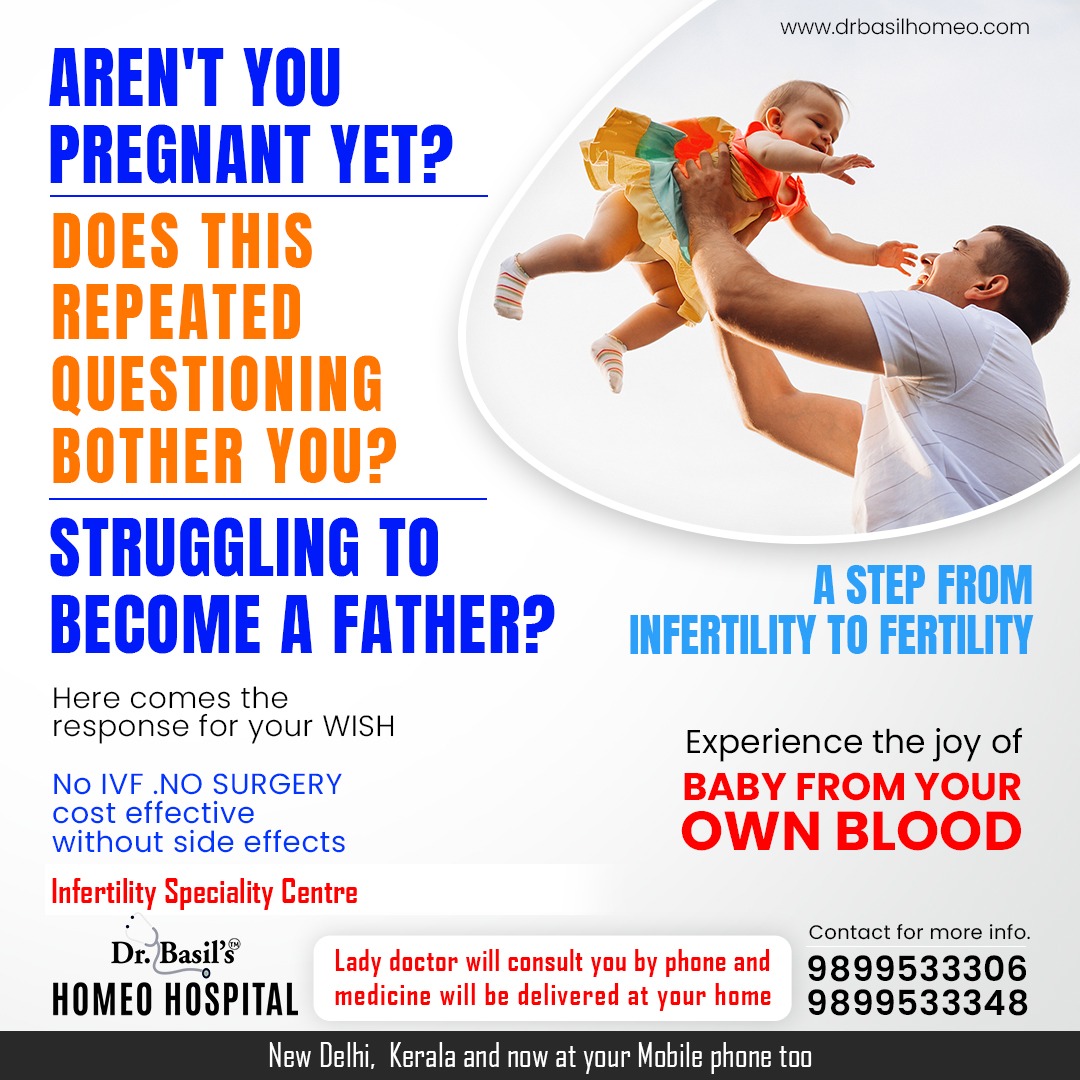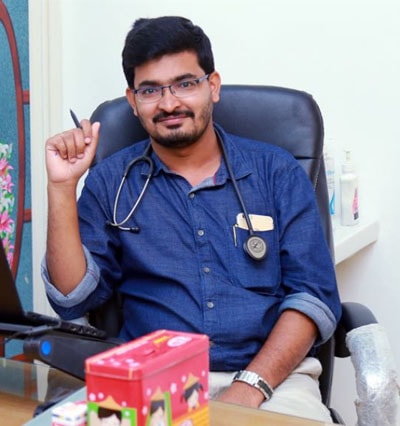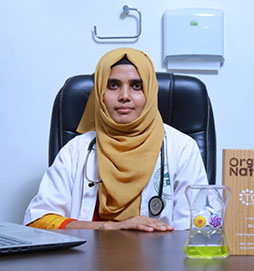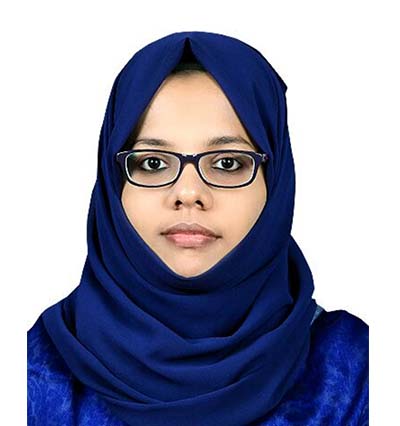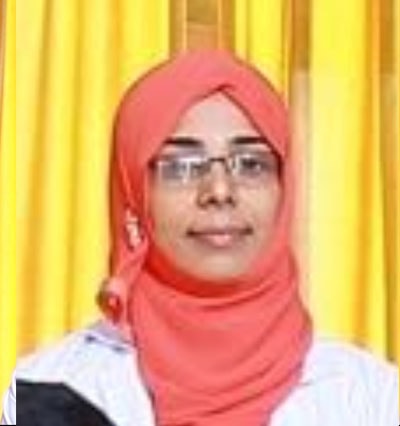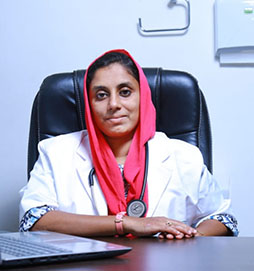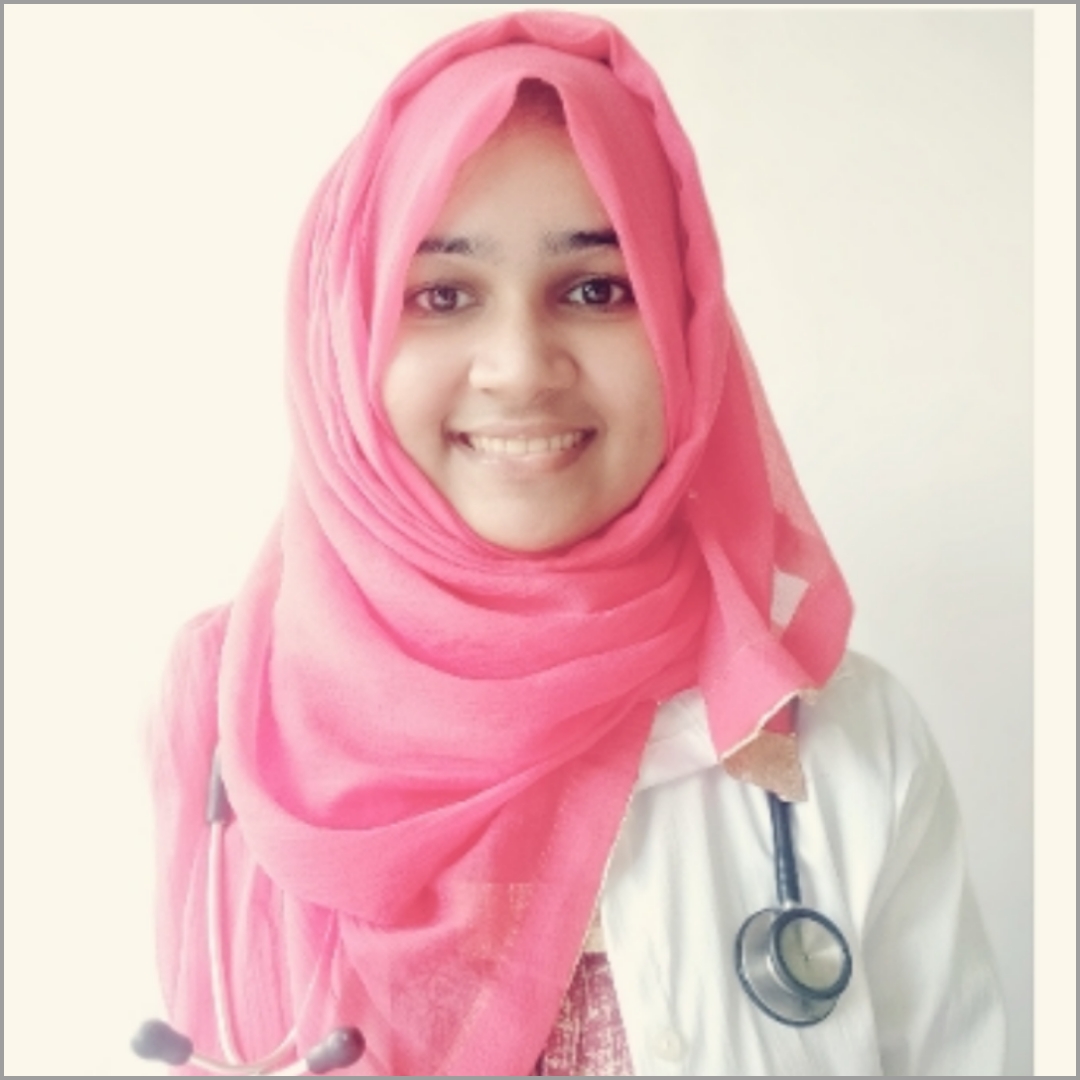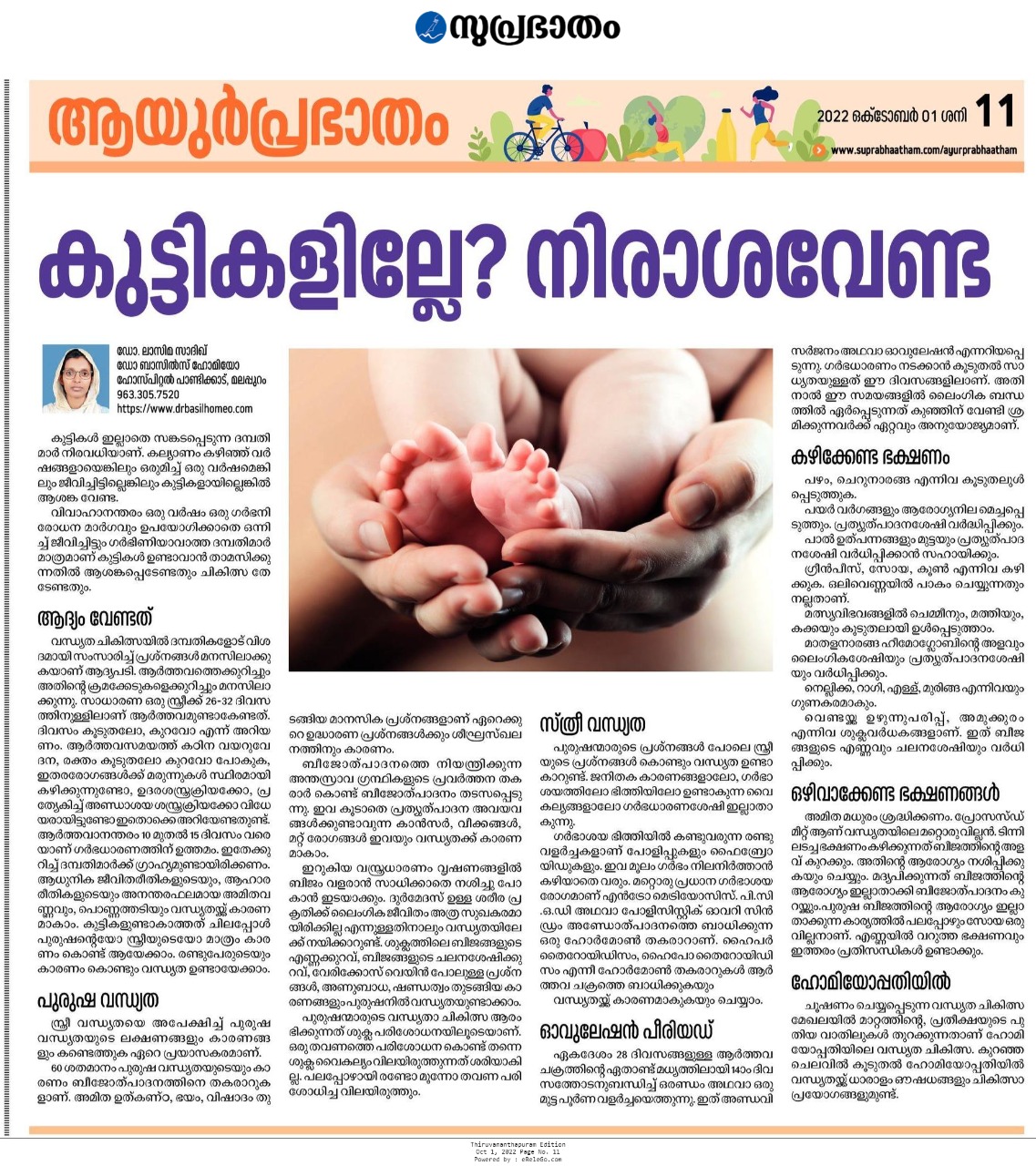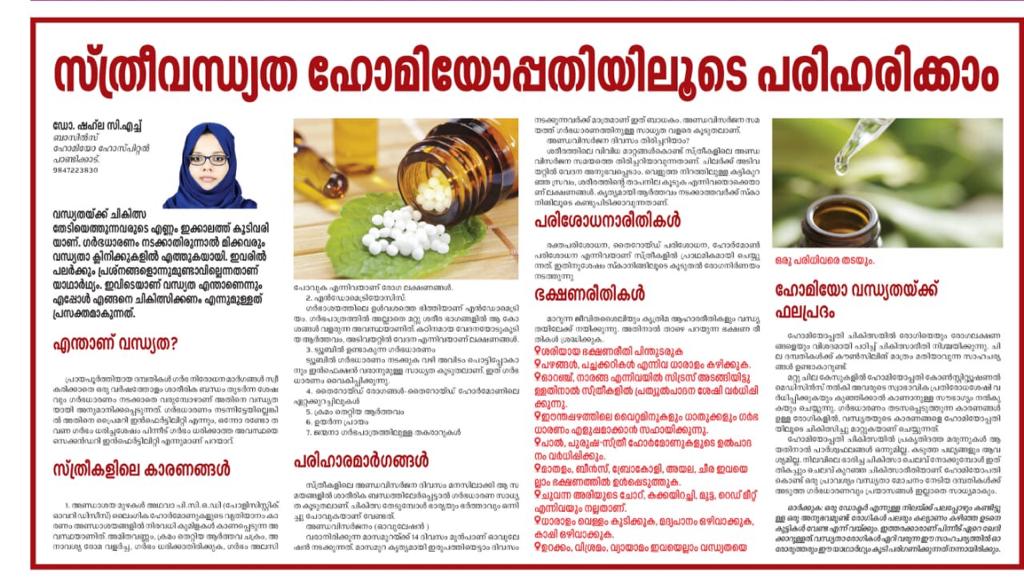Infertility Speciality Centre of Dr.Basil's Homeo Hospital
Videos on Infertility
Meet our Doctors
If you are looking for the best homeopathic doctor, then you have come to the right place! We have a group of expert homeo doctors who will provide you with quality homeopathic care and care in accordance with the mission of the clinic.
What Makes Us Different
Frequently Asked Questions
Infertility is a disease condition where a sexually active couple is unable to achieve pregnancy after one year of regular, unprotected intercourse. The causes may be due to male factors, female factors or can be due to combined reasons from both sides. Even though it is true that in many cases the reason is unknown.
- Low sperm count (oligospermia) - Having fewer sperm than normal makes it harder for sperm to reach and fertilize the egg. A count under 15 million sperm per mL is considered low.
- Poor sperm motility (asthenozoospermia) - Reduced sperm mobility impairs their ability to move towards the egg. At least 40% should have good forward movement.
- Abnormal sperm shape (teratozoospermia) - Defects in sperm shape make it difficult for them to penetrate the egg. Over 85% should have a normal oval shape.
- Varicocele - Enlarged veins in the scrotum can overheat the testicles and reduce sperm count and quality.
- Testicular trauma or injury - Any damage to the testicles can affect sperm production.
- Infection - Sexually transmitted infections like chlamydia or mumps virus can impair sperm function.
- Ejaculation issues - Problems with ejaculation due to sexual issues, nerve damage, or retrograde ejaculation can make fertilization difficult.
- Hormone imbalance - Low testosterone, excessive estrogen, or thyroid problems can disrupt sperm production.
- Genetic defects - Chromosomal or genetic issues that cause impaired development of healthy sperm.
- Blockages - Obstructions in the epididymis or vas deferens ducts can prevent sperm transport.
- Antisperm antibodies - The immune system mistakenly attacks the man's sperm cells.
- Semen analysis - The primary test to evaluate semen volume, sperm count, motility, and morphology. Usually requires two or more samples.
- Hormone testing - Measuring levels of testosterone, follicle-stimulating hormone (FSH), and luteinizing hormone (LH) to assess hormonal function.
- Genetic testing - Karyotype and genetic anomaly testing to identify chromosomal defects.
- Ultrasound - Scrotal ultrasound to look for varicoceles, cysts, tumours, or other structural issues. Transrectal ultrasound to examine ejaculatory ducts.
- Testicular biopsy - Removing testicular tissue to check for obstructions, testicular failure, or other abnormalities.
- Vasography - X-ray of the vas deferens using contrast media to highlight blockages.
- Post-ejaculate urinalysis - Checking urine after masturbation to assess retrograde ejaculation.
- Microbiological studies - Semen, urine, and blood tests to diagnose urogenital infections.
- Anti-sperm antibody test - Evaluating blood for anti-sperm antibodies that can impair fertility.
- MRI - Detailed images of the pituitary gland or testicles to pinpoint abnormalities.
- Trial of hormones/medications - Giving testosterone or gonadotropins to see if sperm production improves.
- Ovulation disorders - Problems with ovulation account for about 25% of female infertility. These include polycystic ovary syndrome (PCOS), hypogonadotropic hypogonadism, and ovarian insufficiency.
- Tubal blockage - Blocked or damaged fallopian tubes prevent the egg from travelling to the uterus. Causes include pelvic inflammatory disease, prior surgery, or endometriosis.
- Uterine problems - Issues with the uterus like fibroids, polyps, congenital malformations, or scarring can disrupt implantation.
- Endometriosis - When uterine tissue grows outside the uterus, it can distort pelvic anatomy and impair fertility.
- Cervical issues - Cervical stenosis, abnormalities, scarring, or mucus problems can hamper sperm movement.
- Ovulatory dysfunction - Problems with ovulation timing and regularity make conception difficult. Often tied to hormonal imbalances.
- Primary ovarian insufficiency - When ovaries stop working normally before age 40 due to genetics, autoimmunity, toxins, etc.
- Pelvic adhesions - Scarring from infections, endometriosis or prior surgeries can obstruct the fallopian tubes.
- Hyperprolactinemia - High prolactin levels from tumours or medications interfere with ovulation.
- Poor egg quality - Declining egg quality due to age or genetic issues reduces fertility.
- Pelvic ultrasound - Helps identify uterine fibroids, ovarian cysts, endometriosis, etc.
- Ovarian reserve testing - Blood tests for hormones like FSH, estradiol, and AMH to assess ovarian function.
- Ovulation testing - Using urine tests, blood tests, or ultrasound to confirm ovulation is occurring.
- Hysterosalpingography - X-ray using contrast dye to examine the uterus and fallopian tubes.
- Hysteroscopy - Visual examination of the uterus with a hysteroscope inserted through the cervix.
- Laparoscopy - Minimally invasive surgery to view the pelvic organs for abnormalities.
- Postcoital test - Evaluates cervical mucus and sperm interaction by examining mucus after intercourse.
- Thyroid function tests - Assessing thyroid hormone levels which can impact menstrual cycles and fertility if abnormal.
- Prolactin level - Screens for elevated prolactin which disrupts ovulation.
- Endometrial biopsy - Takes a sample of the uterine lining to evaluate for abnormalities.
- Genetic testing - Checks for genetic issues like Fragile X syndrome that can cause fertility problems.
Homeopathy is very effective in treating infertility. A good number of couples are fulfilling their dream of having a child with the help of Homeopathy medicines for infertility. Homoeopathy involves both partners in infertility treatment. Homoeopathy does not merely treat the disease condition but considers the patient as a whole and completely corrects the alterations in the healthy state of the patient. so that a Homeopathic physician takes a detailed case of the patient. The case-taking includes the history, family history, physical characteristics, mental features, and social and moral values of the patient. From these all the doctor will arrive at a totality of symptoms. He will select Homeopathy medicines for infertility, which are suited for the totality of symptoms of the patient.
Homeopathy medicines are completely safe since they don’t have any side effects or complications. It can also be taken by patients who are under medication for any other health issues. Home medicines vary from patient to patient, depending upon the symptoms and causes of infertility. Moreover, this Homeopathy treatment is less expensive and effective while considering other streams of treatment for infertility.
Homeopathy treatment for infertility is completely natural and is a hope for patients to have a biological baby.
Homeopathy treatment at Dr. Basil's Homeo Hospital addresses infertility by focusing on the individual's overall health and treating underlying factors contributing to the issue. The approach is holistic, aiming to restore balance and promote natural reproductive function.
Yes, Dr. Basil's Homeo Hospital is renowned for its expertise in homeopathy for infertility. The experienced practitioners tailor treatments to address both male and female infertility concerns, providing personalized care for optimal results.
Dr. Basil's Homeo Hospital offers a range of homeopathic medicines for female infertility, targeting hormonal imbalances, irregular cycles, and other factors. The treatments are customized to address each woman's unique needs.
Yes, the integrated approach at Dr. Basil's Homeo Hospital allows for the simultaneous treatment of both male and female infertility. The goal is to optimize reproductive health for couples seeking conception.
The duration varies based on individual factors, but many patients observe positive changes within a few months of starting homeopathy treatment at Dr. Basil's Hospital.
Online consultations at Dr. Basil's Homeo Hospital are designed to be highly effective. The experienced homeopathy doctors utilize comprehensive virtual assessments to understand individual fertility issues and tailor treatment plans accordingly.
The online consultation at Dr. Basil's Homeo Hospital mirrors the in-person experience, with the added convenience of virtual interaction. Detailed assessments, personalized treatment plans, and expert guidance are all integral parts of the online fertility consultation process.
Yes, Dr. Basil's Homeo Hospital recognizes the emotional challenges associated with infertility, and online consultations may include support services and counseling for couples seeking fertility solutions.
Scheduling an online consultation is easy. You can visit the hospital's website to book an appointment or contact their staff directly for assistance with the online consultation process.
Yes, Dr. Basil's Homeo Hospital has a track record of successfully managing complex cases of infertility. The experienced team is well-equipped to address a variety of underlying factors contributing to reproductive challenges.
While age can influence fertility, homeopathy treatment at Dr. Basil's Homeo Hospital is designed to address fertility issues across different age groups. The personalized approach takes into account individual factors and challenges.
While individualized treatment plans are created, addressing both partners simultaneously can enhance the chances of success. Dr. Basil's Homeo Hospital encourages a comprehensive approach for couples seeking fertility solutions.
While individualized treatment plans are created, addressing both partners simultaneously can enhance the chances of success. Dr. Basil's Homeo Hospital encourages a comprehensive approach for couples seeking fertility solutions.
- Expert Homeopathy Doctors
- Advanced Diagnostic Facilities
- Personalized Care for Male and Female Infertility
- Contemporary Virtual Consultations
- Integrated Holistic Approach
- Specialized Treatment for Complex Cases
- Patient Education Programs
- Seamless Transition Between Virtual and In-person Care
- Community Outreach Initiatives
- Transparent and Ethical Practices
We are in News
Testimonials

“I am delighted to be treated in Doctor Basil's hospital. I never thought it's possible to treat external hemorrhoids without undergoing operation. Once more it's my pleasure having great experience at Homoeopathic speciality center, India.”

“The treatment providing at Dr.Basil's Homoeo Hospital is very unique and effective. Thinking out of the box and practising by being scientific, advanced & co-ordinated has resulted many happy patients with in a short time.”

“Dr.Basil's Homoeo Hospital is very professional service and the Doctors were hightly competent in handling all the medical conditions. Many patients have study recovery with a short period of time.”

